Posts Tagged ‘alternate history’
New Fall Syllabus #1: Alternate History!
I’m teaching three classes this semester, ENGLISH 4615/5615 (“Infinite Jest”), ENGLISH 2010 (“Alternate History”), and HOPR 1953 (“Video Game Culture”) (one-credit, pass/fail, now with Pokémon Go!). I’m very excited about all three. The Infinite Jest course is one I’ve wanted to do for a very long time — I came up with the whole idea of adding the new 4615/5615 course number to the Marquette English just so I could do this course — and the alternate-history course has been puttering around in my brain as a pedagogical opportunity for just about as long.
I got a lot of help from folks on Twitter and Facebook with the alternate history novel course, both at the level of generating texts but also at the level of conceptualizing the course a little different so it could be more inclusive, and I’m really grateful for that. I was finally sold by Alexis Lothian on the idea that I was being silly by being resistant to stories like The Lathe of Heaven and “The Book of Martha,” for instance, and that the practical effect of that resistance was to make the class much whiter and much maler than it really needed to be. Now, the course is still pretty white and very male, but the genre itself is, and somehow or another that’s something I want to start to talk about as the semester progresses. The excellent suggestion of Karen Joy Fowler’s story “Game Night at the Fox and Goose” will really help me make that pivot, I think, as will In the United States of Africa (a great novel I couldn’t believe I forgot to include until it was pointed out to me I’d forgotten to include it, I think by Aaron Bady).
A few other things I was very sad to lose:
- I was originally going to do “an alternate history of an alternate history” thing to end the semester, Superman: Red Son, but it just didn’t make sense the way the course took shape. I held on to the idea way too long, and only cut the book two days ago. Sorry, bookstore!
- The whole original point of all this was to use the course as an excuse to teach The Years of Rice and Salt, a book I love which seems just too long too teach in any other context. And it still seems too long to teach (at least at the sophomore level). I had to give it up, and wasn’t able to include even any excerpts because I crammed in too much other stuff. Someday!
- Another thing that fell out of the course was a group presentation structure in which individual groups researched the actual history of the hinge point of each divergence and reported on it. I realized that with the newer, more expansive idea of the course this wasn’t going to work very well for at least half the books, and probably would have been reductive and overdetermined our conversations in practice, so it had to be abandoned as well.
- I really, really wanted to include a Ted Chiang what-if-religion-were-empirically-verifiable story like “Hell Is The Absence of God,” but, again, it seemed just a bit far too off the mark this time.
- I am, indeed, doing literally just one page from The Plot Against America, fulfilling my perverse desire to do so.
- There were many other great suggestions for books that I wasn’t able to use. A few that I really struggled over:
- Life After Life: a Replay-style reincarnation novel about World War I;
- Replay itself, which is just too time-travel-ish for this (though I’ve always really liked it);
- I likewise ruled out some other really good alternate-timeline stories because they were really time travel stories, from my puritanical perspective;
- Something longer from Butler, perhaps Wild Seed (again, just too far afield generically for what I’m hoping to do);
- Something truly (“merely”) generic, like Turtledove or Bring the Jubilee;
- Lion’s Blood, Atomik Aztex, The Indians Won, The Bird Is Gone, The Heirs of Columbus, etc. I was so hung up on the idea of doing The Years of Rice and Salt that it crowded out this space for me (and then I added In the United States of Africa instead, to take on this question from a different direction). Next time.
- Swastika Night, 1984, Handmaid’s Tale, Battle Royale: all good suggestions but didn’t hit the sense of “pastness” required by my conception of alternate history as a genre, as they were all future histories in their original moment of production;
- District 9: only (re-)occurred to me at the last second because I was talking about it to somebody in another context, and didn’t have time to do it because the syllabus was (again) too crammed with too much other stuff. Someone had suggested Born in Flames to me as well, which also would have been great.
- I also really wanted to play some board games like Twilight Struggle, Risk, Axis and Allies, and Chrononauts, but it seemed like it would be unwieldy and pointless with 35 students in the room. I think Civilization could scratch the same itch, though…
All right, with all those caveats, apologies, and thanks, here’s the week by week schedule (and full syllabus with all course procedures)! Three papers, the first two “traditionally scholarly,” the third one with a creative option, as well as a few creative micro-assignments here and there. If there’s anything more I should explain or you have any questions about the decisions I made, feel free to ask in the comments!
| M | Aug. 29 | FIRST DAY OF CLASS
in-class writing exercise: “What If…” |
| W | Aug. 31 | class discussion: “What If…” |
| UNIT ONE: ALTERNATE WORLD WAR IIs | ||
| F | Sep. 2 | Kim Stanley Robinson, “The Lucky Strike” |
| M | Sep. 5 | LABOR DAY—NO CLASS |
| W | Sep. 7 | Kim Stanley Robinson, “A Sensitive Dependence on Initial Conditions” |
| F | Sep. 9 | FIRST PAPER GUIDELINES DISTRIBUTED
Star Trek: “The City on the Edge of Forever” (discussion only; watch it on your own!) criticism: H. Bruce Franklin, “Star Trek in the Vietnam Era” [D2L] |
| M | Sep. 12 | Philip K. Dick, The Man in the High Castle, chapters 1-3 |
| W | Sep. 14 | Philip K. Dick, The Man in the High Castle, chapters 4-6 |
| F | Sep. 16 | Philip K. Dick, The Man in the High Castle, chapters 7-9 |
| M | Sep. 19 | Philip K. Dick, The Man in the High Castle, chapters 10-13 |
| W | Sep. 21 | Philip K. Dick, The Man in the High Castle (whole book) |
| F | Sep. 23 | The Man in the High Castle (2015 Amazon pilot) (discussion only; watch it on your own!) |
| M | Sep. 26 | Quentin Tarantino, Inglourious Basterds (discussion only; optional screening date and time TBA) |
| W | Sep. 28 | Quentin Tarantino, Inglourious Basterds (discussion continues)
· review: Ben Waters, “Debating Inglourious Basterds” [Web] · review: Michael Atkinson, “The Anti-Blockbuster” [Web] · review: Lee Siegel, “Tarantino’s Hollow Violence” [Web] · review: Jeffrey Goldberg, “Hollywood’s Jewish Avenger” [Web] |
| F | Sep. 30 | Lauren Davis, “Quentin Tarantino’s Spin Through Alternate History” [io9.com]
creative writing: Draft a short flash fiction [500-1000 words] or create an artifact, document, or image set in the 2016 of the world of Inglourious Basterds
Philip Roth, The Plot Against America (excerpt) [D2L] |
| UNIT TWO: OTHER HISTORIES | ||
| M | Oct. 3 | FIRST PAPER WORKSHOP
Bring in at least your introductory paragraphs, main claim, and an outline of your paper. |
| W | Oct. 5 | Sid Meier’s Civilization
videos: Civilization V timelapse gameplay videos [YouTube] post: Trevor Owens, “Sid Meier’s Colonization: Is It Offensive Enough?” [Web] thread: Lycerius, “I’ve Been Playing the Same Game of Civilization for Almost Ten Years. This Is the Result” [Reddit] |
| F | Oct. 7 | Sid Meier’s Civilization
criticism: Kacper Pobłocki, “Becoming-State: The Bio-Cultural Imperialism of Sid Meier’s Civilization” |
| M | Oct. 10 | FIRST PAPER DUE
SECOND PAPER GUIDELINES DISTRIBUTED Ursula K. Le Guin, “The Ones Who Walk Away from Omelas” [D2L] |
| W | Oct. 12 | Karen Joy Fowler, “Game Night at the Fox and Goose” [D2L] |
| F | Oct. 14 | criticism: L. Timmel Duchamp, “Playing with the Big Boys: (Alternate) History in Karen Joy Fowler’s ‘Game Night at the Fox and Goose’” [Web] |
| M | Oct. 17 | Lin-Manuel Miranda, Hamilton |
| W | Oct. 19 | Lin-Manuel Miranda, Hamilton
thinkpiece: Jennifer Schuessler, “Hamilton and History: Are They in Sync?” [Web] interview: Rebecca Onion and Lyra D. Monteiro, “A Hamilton Skeptic on Why the Show Isn’t As Revolutionary As It Seems” [Web] |
| F | Oct. 21 | FALL BREAK—NO CLASS |
| M | Oct. 24 | Terry Bisson, Fire on the Mountain, pgs. 1-66 |
| W | Oct. 26 | Terry Bisson, Fire on the Mountain, pgs. 67-119 |
| F | Oct. 28 | Terry Bisson, Fire on the Mountain (whole book) |
| M | Oct. 31 | Abdourahman A. Waberi, In the United States of Africa (part one) |
| W | Nov. 2 | Abdourahman A. Waberi, In the United States of Africa (whole book)
criticism: Justin Izzo, “Historical Reversibility as Ethnographic Afrofuturism: Abdourahman Waberi’s Alternative Africa” |
| F | Nov. 4 | CONFERENCES—CLASS CANCELLED |
| UNIT THREE: DREAMING OF DIFFERENCE | ||
| M | Nov. 7 | Kazuo Ishiguro, Never Let Me Go (chapters 1-4) |
| W | Nov. 9 | Kazuo Ishiguro, Never Let Me Go (chapters 5-6) |
| F | Nov. 11 | Kazuo Ishiguro, Never Let Me Go (chapters 7-9) |
| M | Nov. 14 | SECOND PAPER DUE
FINAL PROJECT GUIDELINES DISTRIBUTED Kazuo Ishiguro, Never Let Me Go (chapters 10-13) |
| W | Nov. 16 | Kazuo Ishiguro, Never Let Me Go (chapters 14-16) |
| F | Nov. 18 | Kazuo Ishiguro, Never Let Me Go (chapters 17-19) |
| M | Nov. 21 | Kazuo Ishiguro, Never Let Me Go (whole book)
Martin Puchner, “When We Were Clones” [D2L] |
| W | Nov. 23 | THANKSGIVING BREAK—NO CLASS |
| F | Nov. 25 | THANKSGIVING BREAK—NO CLASS |
| M | Nov. 28 | Ursula K. Le Guin, The Lathe of Heaven (chapters 1-4) |
| W | Nov. 30 | Ursula K. Le Guin, The Lathe of Heaven (chapters 5-8) |
| F | Dec. 2 | Ursula K. Le Guin, The Lathe of Heaven (whole book) |
| M | Dec. 5 | Octavia E. Butler, “The Book of Martha”
creative writing: Imagine God comes to you with the same offer he/she/it brings to Martha. What one change would you make to the world, and why? |
| W | Dec. 7 | Octavia E. Butler, “The Book of Martha” (discussion continues)
creative writing: Draft a flash fiction [500-1000 words] or create an artifact, document, or image set in the world that exists sometime after the end of “The Book of Martha.”
Octavia E. Butler, “Afterword to ‘The Book of Martha’” Gerry Canavan, Octavia E. Butler (excerpt) [D2L] |
| F | Dec. 9 | FINAL PROJECT WORKSHOP
LAST DAY OF CLASS |
| F | Dec. 16 | FINAL ASSIGNMENT DUE BY 12:30 PM |
New Course Descriptions for Fall 2016: “Alternate History” and “INFINITE JEST”
So, this is what I’ll be teaching in the fall.
I’m a little swamped this morning so I can’t do the longer post on the Alternate History course I’ve been meaning too, but I wanted to thank the people on Twitter and Facebook who gave me such good ideas for additional texts in the course and really helped me expand my vision of what was possible. I’ll have a post about that sometime in the next couple of weeks, I hope…
ENGLISH 2000: LITERATURE AND GENRE
Course Title: Alternate History
Course Description: What if Hitler had never taken power? What if the United States had never dropped the atomic bomb on Japan? What if the 9/11 terror attacks had been foiled? What if Gore had beat Bush? What if slaves in the American South had successfully revolted, or China had discovered the New World, or the Black Plague had killed 99% of Europeans instead of only 25%? What if cloning had been invented and perfected in the 1970s? What if Superman’s rocket ship had landed in the Ukraine instead of Kansas? Is history made by Great Men, or by social movements, or by technological progress, or by random chance? Does history follow some set of laws or rules, or is it all just a bunch of stuff that happens? This course will explore all these topics and more through dedicated exploration of the literary genre typically called “alternate history”: stories of worlds that are exactly like ours, until some historical event, big or small, goes another way…
Readings: This course will explore the alternate history genre through a wide variety of media forms including prose fiction, film and television, comics, and games, but major readings for the course will include Mark Millar’s Superman: Red Son, Kazuo Ishiguro’s Never Let Me Go, Abdourahman Waberi’s In the United States of Africa, Terry Bisson’s Fire on the Mountain, Ursula K. Le Guin’s The Lathe of Heaven, and Philip K. Dick’s The Man in the High Castle, among others.
Assignments: two 4-6-page papers; one 6-8-page final paper; online discussion forum; active class discussion; presentations
ENGLISH 4615/5615: TEXT IN CONTEXT
Course Title: Infinite Jest
Course Description: I had a teacher I liked who used to say good fiction’s job was to comfort the disturbed and disturb the comfortable. I guess a big part of serious fiction’s purpose is to give the reader, who like all of us is sort of marooned in her own skull, to give her imaginative access to other selves.… We all suffer alone in the real world; true empathy’s impossible. But if a piece of fiction can allow us imaginatively to identify with a character’s pain, we might then also more easily conceive of others identifying with our own. This is nourishing, redemptive; we become less alone inside. —David Foster Wallace
This course explores the literary, cultural, and intellectual legacy of David Foster Wallace (1962-2008), widely considered by admirers and detractors alike to be among the most influential and important writers of his generation. In particular we will study his magnum opus, Infinite Jest (1996), twenty years old this year, a book which not only continues to speak with shocking relevance and delightful irreverence to our present, but which seems, in many ways, to have accurately predicted it. Slowly and carefully reading Wallace’s epoch-defining novel together will open up a window on the last twenty years of American life, letters, entertainment, and art, while the unavoidable shadow cast by his 2008 suicide will raise important questions for us about literary celebrity, biographical criticism, and the often troubled relationship between public personae and the real, lived lives of writers and artists.
Readings: David Foster Wallace, Infinite Jest; coursepack
Assignments: seminar paper (12-15 pages); two “thinkpiece”-length “mini-papers”; online reading journal; active class participation; presentations
Finals Week Links!
 * ICYMI: The CFP for the 11th Annual Midwest Interdisciplinary Graduate Conference ends tomorrow.
* ICYMI: The CFP for the 11th Annual Midwest Interdisciplinary Graduate Conference ends tomorrow.
* College sports’ fastest-rising expense: Paying coaches not to work.
* Huge, if true: While university presidents earn millions, many professors struggle.
* Shakespeare, by the numbers.
* Soviet Science Fiction Christmas Cards.
* The Radicalization of Luke Skywalker: A Jedi’s Path to Jihad.
* In Historic Paris Climate Deal, World Unanimously Agrees To Not Burn Most Fossil Fuels. “A long-shot chance to save the planet.” And on the neg: Grand promises of Paris climate deal undermined by squalid retrenchments.
* The climate movement as peace movement.
* In a security video obtained by The New York Times, Mr. Strickland is seen in handcuffs, barely conscious and being dragged along the floor by officers, while a prison nurse standing close by does nothing. Even as he lies face down on the floor, near death, guards can be heard shouting, “Stop resisting.”
* Police restraint saves lives.
* Meet the apostates of the trans rights movement.
* For Fury Road’s fluid editing, Miller called upon his wife, Margaret Sixel, who had spent most of her career editing documentaries and had never cut an action movie before. “We’ve got teenage sons, but I’m the one who goes to the action movies with them!” laughed Miller. “So when I asked her to do Mad Max, she said, ‘Well, why me?’ And I said, ‘Because then it’s not going to look like other action movies.’” And it doesn’t. Compare the smart, iterative set pieces of Fury Road to one of the incoherent car chases in Spectre, for example, and you’ll see that Sixel prizes a sense of spatial relationships that has become all too rare in action movies. “She’s a real stickler for that,” said Miller. “And it takes a lot of effort! It’s not just lining up all the best shots and stringing them together, and she’s very aware of that. She’s also looking for a thematic connection from one shot to the next. If it regressed the characters and their relationships, she’d be against that. And she has a very low boredom threshold, so there’s no repetition.”
* Roar Magazine #0: The Potential of Debtors’ Unions.
* Jacqui Shine at LARoB reviews We Believe the Children: A Moral Panic in the 1980s.
* MST3K breaks Kickstarter records, secures 14 new episodes. Let the backlash commence!
* We’re apparently getting two China Miéville novels this year, and the second one sounds incredible.
THE LAST DAYS OF NEW PARIS is an intense and gripping tale set in an alternative universe: June 1940 following Paris’ fall to the Germans, the villa of Air-Bel in Marsailles, is filled with Trotskyists, anti-fascists, exiled artists, and surrealists. One Air-Bel dissident decides the best way to fight the Nazis is to construct a surrealist bomb. When the bomb is accidentally detonated, surrealist Cataclysm sweeps Paris and transforms it according to a violent, weaponized dream logic.
* He said the solar farms would suck up all the energy from the sun and businesses would not come to Woodland.
* The Senate is so crazily designed it would be literally illegal for a US state to copy it.
* Dilbert minus with too much Dilbert.
* The lost Marxists: what happened to the academics made jobless by communism’s collapse?
* Mockingjay Part 2: Let’s talk about that epilogue.
* Teach the controversy: The sealed mausoleum believed to be a fully-functioning time machine.
* A brief history of trying and failing to impeach Supreme Court justices.
* The Indo-European and Uralic Language Families.
* Your short of the week: “Lost Property.”
* Jessica Jones, Buffy season six, and rape.
* The Voight-Kampff Empathy Test, updated for 2015.
‘The Lucky Strike’ at Strange Horizons
This week Strange Horizons reprints my favorite Kim Stanley Robinson story, “The Lucky Strike” (podcast), though for my money it’s really worth getting the PM Press edition that pairs it with his great “A Sensitive Dependence on Initial Conditions” essay.
Picasso’s X-Nica
I’ve always felt Picasso’s X-nica was deeply underrated. To this day no one has captured the mutant tragedy like he did.
More alternate-history comics here.






 * If you only read one Star Trek: Discovery postmortem this week,
* If you only read one Star Trek: Discovery postmortem this week, 

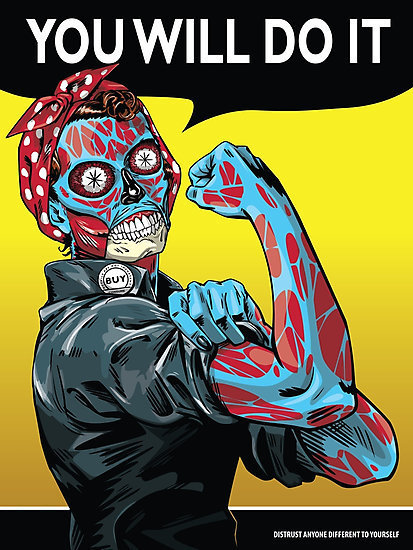








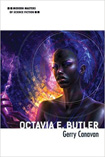

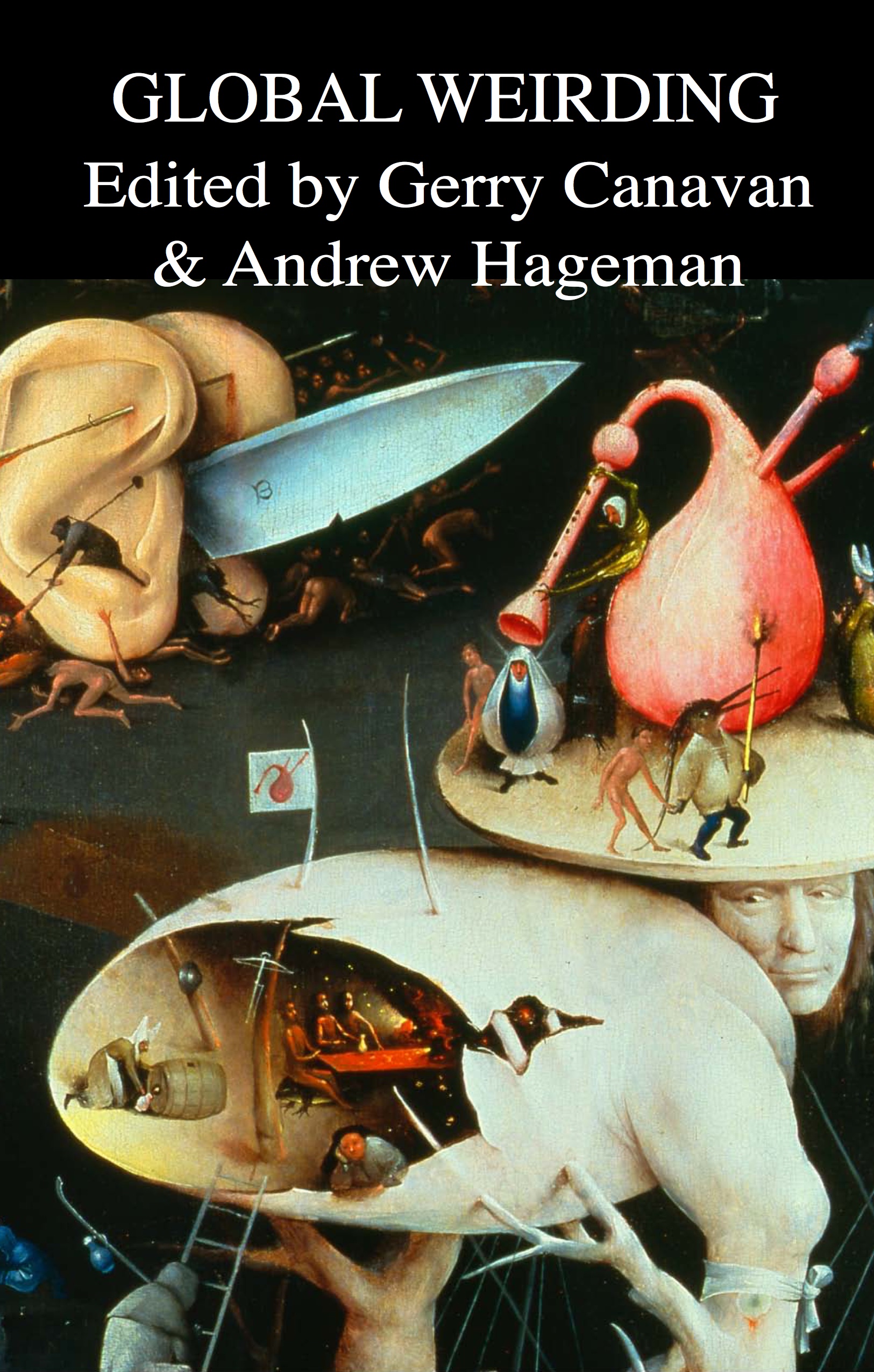
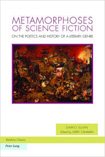
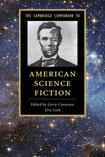

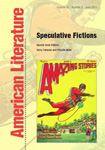

Last Weekend Before the Semester Links!
leave a comment »
* ICYMI: My new syllabi for the fall! Infinite Jest and Alternate History. There’s also a new version of my “Video Game Culture” class, set for a new eleven-meeting schedule and with a “Capitalism” week added centered on Pokémon Go (what? oh, that thing). Relatedly: Milwaukee County Parks are trying to remove Pokemon Go from Lake Park.
* The NLRB has ruled that graduate students at private universities can unionize. How letting grad students unionize could change the labor movement and college sports. The NLRB Columbia Decision and the Future of Academic Labor Struggles. The Union Libel: On the Argument against Collective Bargaining in Higher Ed. But elsewhere in academic labor news: Adjuncts in Religious Studies May Be Excluded From Religious College Unions.
* Are PhD Students Irrational? Well, you don’t have to be, but it helps…
* Colleges hire more minority and female professors, but most jobs filled are adjunct, not tenure track, study finds.
* This morning everyone’s fighting about academic freedom and trigger warnings at the University of Chicago.
* I thought I was the only prof who didn’t really care about deadlines. But apparently there are dozens of us!
* That’ll solve it: Replace college instruction with Ken Burns movies.
* A New Academic Year Brings Fresh Anxiety at Illinois’s Public Colleges.
* Poor and Uneducated: The South’s Cycle of Failing Higher Education.
* Actually, I’m teaching these kids way more than they’re teaching me.
* I’ve dreamed about this since I was a kid: An Epochal Discovery: A Habitable Planet Orbits Our Neighboring Star. Time to teach The Sparrow again…
* Philosophical SF.
* CFP: Futures Near and Far: Utopia, Dystopia, and Futurity, University of Florida.
* Cuban science-fiction redefines the future in the ruins of a socialist utopia.
* Puppies, Slates, and the Leftover Shape of “Victory.” On that Rabid Puppies thing and my Hugo Award-winning novella Binti.
* It was a long time before anyone realized there was something not the same about her.
* From all indications, the next X-Men movie will hew closer to Claremont’s original Dark Phoenix story than the previous cinematic effort. But any sense of authenticity it achieves will only arouse and prolong the desire for closure of the loss not only of a treasured character who might have lived endlessly in the floating timeline, but also of the very narrative finitude in which this loss could only happen once. Comic Book Melancholia.
* Bingewatching vs. plot.
* A new book series at Rowman and Littlefield explores Remakes, Reboots, and Adaptations.
* Hot Tomorrow: The Urgency and Beauty of Cli-Fi.
* Do Better: Sexual Violence in SFF.
* The real questions: How Long Would It Actually Take to Fall Through the Earth?
* How did an EpiPen get to costing $600? Earned every penny. A Case Study in Health System Dysfunction. But, you know, it’s all better now.
* Amazing study at Duke: Virtual Reality and Exoskeleton Help Paraplegics Partially Recover, Study Finds.
* The Epidemic Archives Of The Future Will Be Born Digital.
* How One Professor Will Turn Wisconsin’s Higher-Ed Philosophy Into a Seminar.
* Becoming Eleven. Concept Art Reveals Barb’s Original Stranger Things Fate and It Will Depress You. We Will Get ‘Justice for Barb’ in a Second Season of Stranger Things. This Stranger Things fan theory changes the game.
* Arkansas City Accused Of Jailing Poor People For Bouncing Checks As Small As $15. An Arkansas Judge Sent A Cancer Patient To ‘Debtors’ Prison’ Over A Few Bounced Checks.
* And elsewhere: Drug Court Participants Allegedly Forced To Become Police Informers.
* The times of year you’re most likely to get divorced. Keep scrolling! We’re not done yet.
* Are these the best films of the 21st century? I’m not sure I enjoyed or still think about any film on this list more than I enjoyed and think about The Grand Budapest Hotel, though There Will Be Blood, Memento, Caché, and Children of Men might all be close.
* CBS is bound and determined to make sure Star Trek: Discovery bombs.
* Dr. Strangelove’s Secret Uses of Uranus.
* An Instagram account can index depression.
* After neoliberalism?
* Parenting and moral panic.
* How Screen Addiction Is Damaging Kids’ Brains.
* The technical language obscured an arresting truth: Basis, which I had ordered online without a prescription, paying $60 for a month’s supply, was either the most sophisticated fountain-of-youth scam ever to come to market or the first fountain-of-youth pill ever to work.
* Nazis were even creeps about their horses.
* Mapping the Stephen King meganarrative.
* Good news for Dr. Strange: Dan Harmon wrote on the reshoots.
* My colleague Jodi Melamed writes in the Milwaukee Journal-Sentinel on white Milwaukee’s responsibility.
* The Man Who Stole Himself: The Slave Odyssey of Hans Jonathan. Translated from the Icelandic.
* Saddest postjournalism story yet: “Vote on the topic for a future Washington Post editorial.”
* Katherine Johnson, the human computer.
* I arrived at my friend’s party. A few hours later she died, exactly as planned.
* Uber loses a mere 1.2 billion dollars in the first half of 2016. Can there be any doubt they are just a stalking horse for the robots?
* It’s been interesting watching this one circulate virally: Giving up alcohol opened my eyes to the infuriating truth about why women drink.
* William Shatner Is Sorry Paramount Didn’t Stop Him From Ruining Star Trek V. Apology not accepted.
* Hillary Clinton will likely have a unique chance to remake the federal judiciary. How the first liberal Supreme Court in a generation could reshape America.
* Many donors to Clinton Foundation met with her at State. You don’t say… 4 experts make the case that the Clinton Foundation’s fundraising was troubling.
* Does he want a few of mine? Donald Trump Used Campaign Donations to Buy $55,000 of His Own Book.
* Curt Schilling Is the Next Donald Trump. Hey, that was my bit!
* Oh, so now the imperial presidency is bad.
* Good news, everyone!
* At least Democrats are currently on track to retake the Senate.
* Scenes from the richest country in the history of the world: Texas has highest maternal mortality rate in developed world, study finds. Raw sewage has been leaking into Baltimore’s harbor for five days, city says. It appears aquatic life — the moss that grows on rocks, the bacteria that live in the water and the bugs that hatch there — are the unexpected victims of Americans’ struggle with drug addiction. Ramen is displacing tobacco as most popular US prison currency, study finds.
* No Man’s Sky is like real space exploration: dull, except when it’s sublime.
* A.J. Daulerio, bloodied but unbowed. How Peter Thiel Killed Gawker. Never Mind Peter Thiel. Gawker Killed Itself. Gawker Was Killed by Gaslight. And if you want a vision of the future: A Startup Is Automating the Lawsuit Strategy Peter Thiel Used to Kill Gawker.
* Greenlit for five seasons and a spinoff: The astonishing story of how two wrestling teammates from Miami came to oppose each other in the cocaine wars — one as a drug smuggler, the other as a DEA agent.
* Also greenlighting this one.
* The legacy board games revolution.
* 25 1/2 gimmicky DVD commentary tracks.
* The millennial generation as a whole will lose nearly $8.8 trillion in lifetime income because of climate change. The children of millennials will lose tens of trillions.
* When Icon fought Superman.
* Do not take me for some conjurer of cheap tricks.
* An Exciting History of Drywall.
* Title IX: still under serious threat.
* And it’s not a competition, but Some Turtles See Red Better Than You Do.
Written by gerrycanavan
August 26, 2016 at 9:00 am
Posted in Look at what I found on the Internet
Tagged with academia, academic freedom, academic jobs, academic labor, adaptations, adjunctification, adjuncts, Agustín de Rojas, alcohol, allergies, Alpha Centauri, alternate history, America, Arkansas, artificial intelligence, assisted suicide, austerity, automation, Baltimore, binge watching, Binti, books, cancer, capitalism, CBS, CFPs, children, climate change, Clinton Foundation, college sports, color, Columbia, comics, commentary tracks, content notes, content warnings, crystal meth, Cuba, Curt Schilling, Dan Harmon, David Foster Wallace, DEA, deadlines, debt, Democrats, depression, disability, diversity, divorce, Donald Trump, Dr. Strange, Dr. Strangelove, drugs, drywall, Duke, DVDs, dystopia, ecology, EpiPen, euthanasia, extrasolar planets, fantasy, films, first as tragedy then as farce, fountains of youth, futurity, games, Gandalf, Gawker, graduate student movements, Harry Potter, health care, Hidden Figures, Hillary Clinton, horses, How the University Works, Hugo awards, hydrofracking, Ian McKellan, Iceland, Icon, ideology, if you want a vision of the future, Illinois, imperial presidency, Infinite Jest, infrastructure, Instagram, Jean Gray, Jodi Melamed, journamalism, Katherine Johnson, Ken Burns, legacy board games, longevity, Lord of the Rings, Marquette, meganarratives, melancholy, millennials, Milwaukee, misogyny, moral panics, mortality, my pedagogical empire, NASA, Nazis, NCAA, neoliberalism, Netflix, NLRB, Nnedi Okorafor, No Man's Sky, our brains work in interesting ways, over-educated literary theory PhDs, parenting, pedagogy, Peter Thiel, philosophy, places to invade next, plot, Pokémon Go, polls, post journalism, prison, private college, Proxima Centauri, Rabid Puppies, race, racism, ramen, rape, rape culture, rationality, raw sewage, reboots, religious studies, remakes, Republicans, robots, Ron Johnson, Sad Puppies, science, science fiction, sexism, Should I go to grad school?, siblings, slavery, sobriety, space travel, Star Trek, Star Trek V, Star Trek: Discovery, Stephen King, Stranger Things, suicide, Superman, Supreme Court, swords, syllabi, taxes, teaching, tenure, Texas, the courts, The Grand Budapest Hotel, the law, the Senate, the South, the sublime, the university in ruins, the wisdom of markets, Title IX, transgender issues, trigger warnings, true crime, turtles, Uber, University of Chicago, University of Florida, Utopia, Vox Day, war on drugs, Washington Post, water, Wes Anderson, white people, William Shatner, Wisconsin, writing, X-Men, Yale, Yoss, you and I are gonna live forever